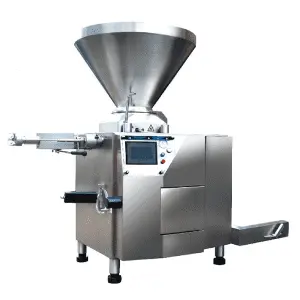નવેમ્બર . 27, 2024 01:06 Back to list
Revolutionizing Meat Processing Equipment for Enhanced Efficiency and Quality
Understanding Meat Processing Equipment and Its Importance in the Food Industry
Meat processing equipment plays a critical role in the food industry, particularly in the production and preparation of meat for human consumption. As global demand for meat products continues to rise, the efficiency and effectiveness of meat processing techniques become pivotal. This article delves into the types of meat processing equipment, their functionalities, and the importance of maintaining high standards of hygiene and quality in meat processing.
Types of Meat Processing Equipment
Meat processing involves various stages that can include cutting, grinding, mixing, and packaging, necessitating a wide range of specialized equipment. Here are some common types of meat processing equipment
1. Meat Saws These are utilized for cutting large pieces of meat into smaller, manageable sections. Band saws are particularly favored for their precision and ability to cut through bones without damaging the meat.
2. Meat Grinders Essential for producing ground meat, grinders can vary in size from small home models to large industrial machines that can handle hundreds of pounds of meat per hour.
3. Mixers When creating products like sausages or meatballs, mixers are crucial for evenly combining meat with seasonings and other ingredients. These can range from manual models to large, automated mixers.
4. Stuffers Sausage stuffers are specialized machines that fill casings with ground meat mixtures. They come in various sizes, suitable for both artisanal and industrial-scale production.
5. Slicers Slicing machines ensure meats are cut evenly, whether for deli meats, jerky, or ready-to-eat meals. High-quality slicers enhance product presentation and consistency.
meat processing equipment

7. Smokers and Ovens For products requiring cooking or flavoring, smokers and ovens are fundamental. They create specific flavors and textures in products like smoked sausages, ham, and bacon.
8. Refrigeration Units Maintaining proper temperature is crucial in meat processing. Refrigeration equipment ensures that meat is stored safely and remains in optimal condition until it is processed or sold.
Importance of Quality and Hygiene
The meat processing industry faces stringent regulations to ensure the safety and quality of meat products. The equipment used in this sector must adhere to health standards laid out by organizations such as the USDA and FDA. Proper sanitation practices are vital to prevent contamination and foodborne illnesses.
- Hygiene Practices Equipment must be regularly cleaned and sanitized to eliminate bacteria and pathogens. Many modern meat processing machines are designed with stainless steel to facilitate easy cleaning and are equipped with features for quick disassembly.
- Quality Control Meat processing equipment must be regularly maintained and calibrated to ensure accuracy and consistency in production. This is particularly important in ensuring that products meet specified weights and dimensions, which influence pricing and consumer satisfaction.
- Traceability Advanced meat processing systems incorporate technology that allows for tracking each product from raw material to the final product. This traceability is essential for quality control, recalls, and consumer information, thus fostering greater trust in meat products.
Conclusion
In summary, meat processing equipment is indispensable in the food industry, supporting the diverse requirements of meat production and preparation. Understanding the various types of equipment, their roles, and the importance of hygiene and quality controls is essential for businesses operating within this sector. As technology continues to advance, the meat processing industry will benefit from enhanced efficiency, improved safety standards, and increased consumer satisfaction. Investing in high-quality equipment not only helps meet the growing demand but also ensures that consumers receive safe and delicious meat products. As we move forward in a rapidly evolving industry, it is imperative to stay informed about innovations that can lead to better practices and superior products in meat processing.
Latest news
-
Pneumatic Clipping Machine-Shijiazhuang Bossin Machinery|Efficient Sausage Production&Cost-Effective Solution
NewsAug.15,2025
-
Pneumatic Clipping Machine - Shijiazhuang Bossin Machinery | Sausage Production Line, Automated Clipping, Precision Efficiency
NewsAug.15,2025
-
Pneumatic Clipping Machine-Shijiazhuang Bossin Machinery|Precision Sausage Production&Efficient Automation
NewsAug.15,2025
-
GZB80 Meat Bowl Cutter: High-Speed Precision for Emulsification
NewsAug.15,2025
-
Pneumatic Clipping Machine - Shijiazhuang Bossin Machinery | Sausage Production Line, Meat Shop Equipment
NewsAug.15,2025
-
Pneumatic Clipping Machine - Shijiazhuang Bossin Machinery Equipment Co., Ltd.|Efficient Sausage Clipping&Seamless Integration
NewsAug.14,2025
